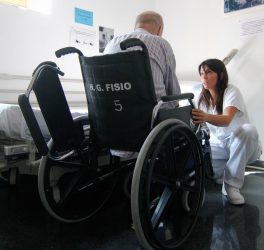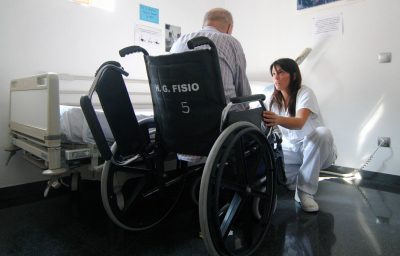
Intellectual disability is most often caused by changes to the genome that take place in early fetal development and are not found in the parents’ DNA. This is why the risk of recurrence in the next sibling of the family is very small, as indicated by a study conducted at the University of Helsinki. Furthermore, Finns do not have a higher risk of inherited developmental disability compared to other Europeans.
The prevalence of intellectual disabilities, which means difficulties with learning and understanding new things, is roughly 1-2% in the population. People with a severe intellectual disability need help from others in daily activities throughout their lives.
Such disabilities can be caused by genetic changes or external factors. According to estimates, roughly 2,500 genes underlie intellectual disability, of which approximately half remain unidentified.
In recent years, the diagnostics for intellectual disabilities have improved thanks to advancements in techniques that make it possible to sequence the entire genome. These techniques can also help to identify causes of intellectual disability not found in other medical examinations and tests. Exome sequencing, that is, the sequencing of the protein-coding regions of genes in the genome, enables the identification of new pathogenic gene variants as well. Identifying genes is a prerequisite for identifying disease mechanisms and developing treatments.
The study conducted at the University of Helsinki utilised exome sequencing to determine the potential genetic background of intellectual disability. The study participants included Finnish families with family members with delayed cognitive development for which no clear cause had been identified. The results were recently published in the Human Genetics journal.
It was found that in 64% of the study participants the cause of their developmental disorder was a known intellectual disability gene. The majority of these variants, 75%, was the result of random mutations taking place during foetal development (de novo), and variants not found in the parents’ genome. An inherited mutation was identified in no more than a quarter of the pathogenic genes studied. More large-scale structural variants, which are usually not inherited, were found in only 8% of the families.
Based on our findings, the risk of recurrence of intellectual disability in the next child of individual families is usually low. Irma Järvelä, Docent
According to Järvelä, this is a significant and relieving piece of information for many families.
She believes the use of exome sequencing as a primary method of examination in the diagnostics for intellectual disabilities is well justified. The technique makes it possible to investigate the cause of disability faster than before, which alleviates the uncertainty and concern felt by families, as well as generates savings in healthcare.
“The more familiar we are with the factors underlying intellectual disabilities and their hereditary nature, the better we are able to help families that encounter these serious disorders,” Järvelä adds.
The Finnish population has become known for its recessively inherited severe diseases caused by single gene defects known as founder variants, with some 40 of such diseases known so far.
The recently published study demonstrated that de novo variants created in early foetal development are the most common cause for intellectual disabilities also in the Finnish population. Known variants associated with recessive diseases were identified in only 5% of the families included in the study, a result in line with other European populations.








